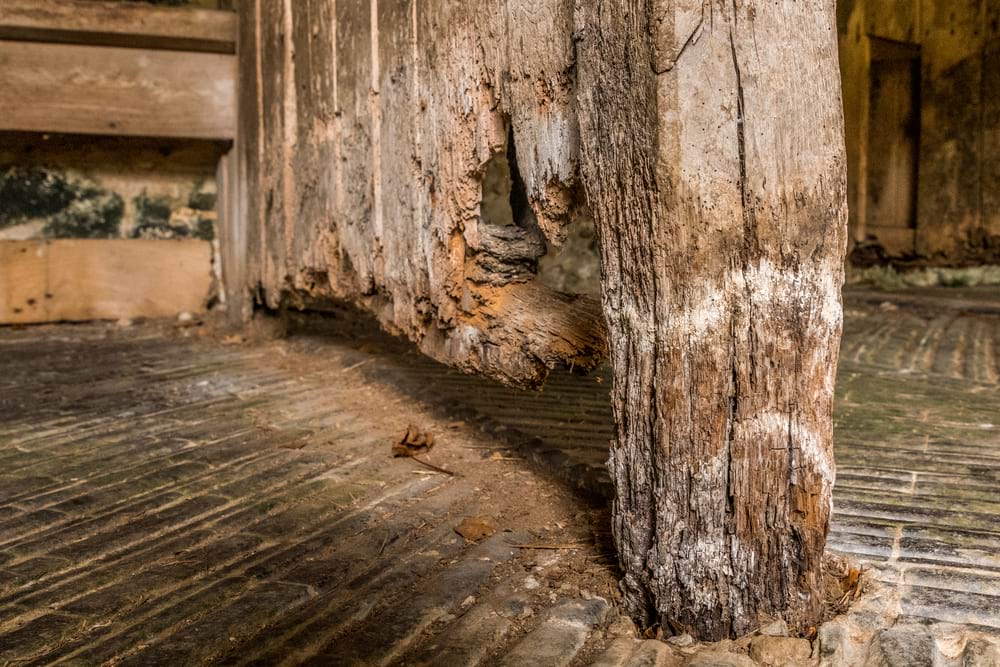Once completion day has passed, you need receive the funds from your house sale.
But how and when is this done?
Read on to find out.
Receiving house sale funds
Step 1: Subject to Contract phase
Once the offer is accepted, the house moves to the Subject to Contract (STC) phase.
Nothing is yet guaranteed, but you are certainly one step closer.
Step 2: Contracts exchanged
Your solicitor will let you know once contracts are signed. The sale now becomes legally binding and the buying party will pay the deposit.
This usually equates to around 10% of the property’s value, but it can vary.
However, the buyer can wait until the survey results are returned, which could significantly impact the final value of the house.
Problems uncovered by house surveys may be covered by a reduced final sale price.
For example, serious issues with damp can devalue a property.
The entire process from house contract exchange to completion usually takes between a week and a month on average.
Step 3: Completion
If everything proceeds as planned and both parties are happy, the transaction moves on to completion.
Your conveyancer will receive the funds from the buyer’s solicitor and pay you via bank transfer. At the same time, you will receive a completion statement.
What is the completion statement?
A completion statement summarises everything that must be paid from the sale proceeds. It will be presented after the house sale.
This could include:
- Legal costs
- Estate agent’s fees
- Admin costs
- Any other outgoings from your sale.
This sometimes means that the bottom line could read much less than expected. It largely depends on who you use to help sell your house.
If you have sold your house via the traditional estate agent route, the length of time until you receive the funds may be longer than expected.
This could be for a variety of reasons, such as:
- The proportion of funds going towards the new purchase
- The fees you are paying for
- The overall complexity of the statement.
The more information to be included on the statement, the longer it takes for you to receive the funds.
Do you get your deposit back when you sell your house?
Once contracts are exchanged, the deposit will usually be paid.
However, depending on the estate agent or solicitor, the deposit may not be paid at this stage.
Once the contracts are signed, the transaction becomes legally binding.
You will receive these funds later, as they will be held until the house sale is completed.
When buyers can’t complete?
Sometimes, the buyer is unable to complete the sale for various reasons.
For example, their mortgage lender might withdraw their offer. This will likely cause the house sale to fall through.
This may stop you from receiving the money you believed was heading your way, you will still be entitled to the deposit.
If the contract has an agreed completion date that cannot be met, the seller may also receive interest on top of the deposit value.
How soon after completion will I receive the funds from my house sale?
Once everything is signed and sealed, you have completed it.
This sees the funds released from the buyer’s conveyancer and passed onto your conveyancer.
If there is a mortgage, the solicitor working for you will request a redemption certificate. This is adjusted to count from the completion day to clear any outstanding mortgage on the property.
Once this has been finalised, your conveyancer will issue a receipt confirming that the funds have been received from the buyer’s side.
They will then run the numbers through the completion statement, with anything left over typically transferred to you on the same day as completion, alongside all of the documents you receive after selling a house.
Getting funds quicker
Through the traditional means, no. The process can be quite complex and, as a result, can take time.
However, if you use an alternative channel to sell your house, the fees (or lack of fees) will differ.
Cash house buyers
Cash house buyers use their own funds to purchase properties within days.
Legal fees and conveyancing costs are all covered, and the drawn-out process, stress and unpredictability of the traditional market are removed.
The only potential downside is that you would not receive a true value for your house.
However, this is only true to a point. Once you factor in all the costs associated with the traditional market, you could save money with a cash buyer.
Part-exchange
Part-exchange of a house is commonly used when trying to secure a new-build property.
This means using the value of your current home to put down as a payment towards the new property.
With new builds tending to be more expensive, the funds will not be released to you as you are using them to secure your new home.
This can be an easy way to ensure a new home, but it can be a little risky.
Property auctions
Auction houses can send you funds much quicker than estate agents.
Property auctions are quite popular with those looking to generate a quick sale on their house. Once the hammer falls and a winning bid is locked in, the deposit is released immediately.
From then, the buyer has around 28 days to complete the purchase.
If, within that period, the balance cannot be paid, the seller keeps the deposit, and the buyer may incur additional interest and fees on top.
Whilst this can facilitate a speedy sale and potentially provide quick access to funds, auctions should be carefully thought out.
There will be auction fees, and you cannot guarantee the value you will get for your property.
You could end up making more than expected or returning a deficit that would not have happened had you sold via other means.
How We Buy Any Home can help
If you are looking to sell but want to avoid the lengthy processes or the delays in receiving your cash, contact our team.
We are specialists in securing quick property sales. We guarantee a sale for any property and cover all of your fees.



















